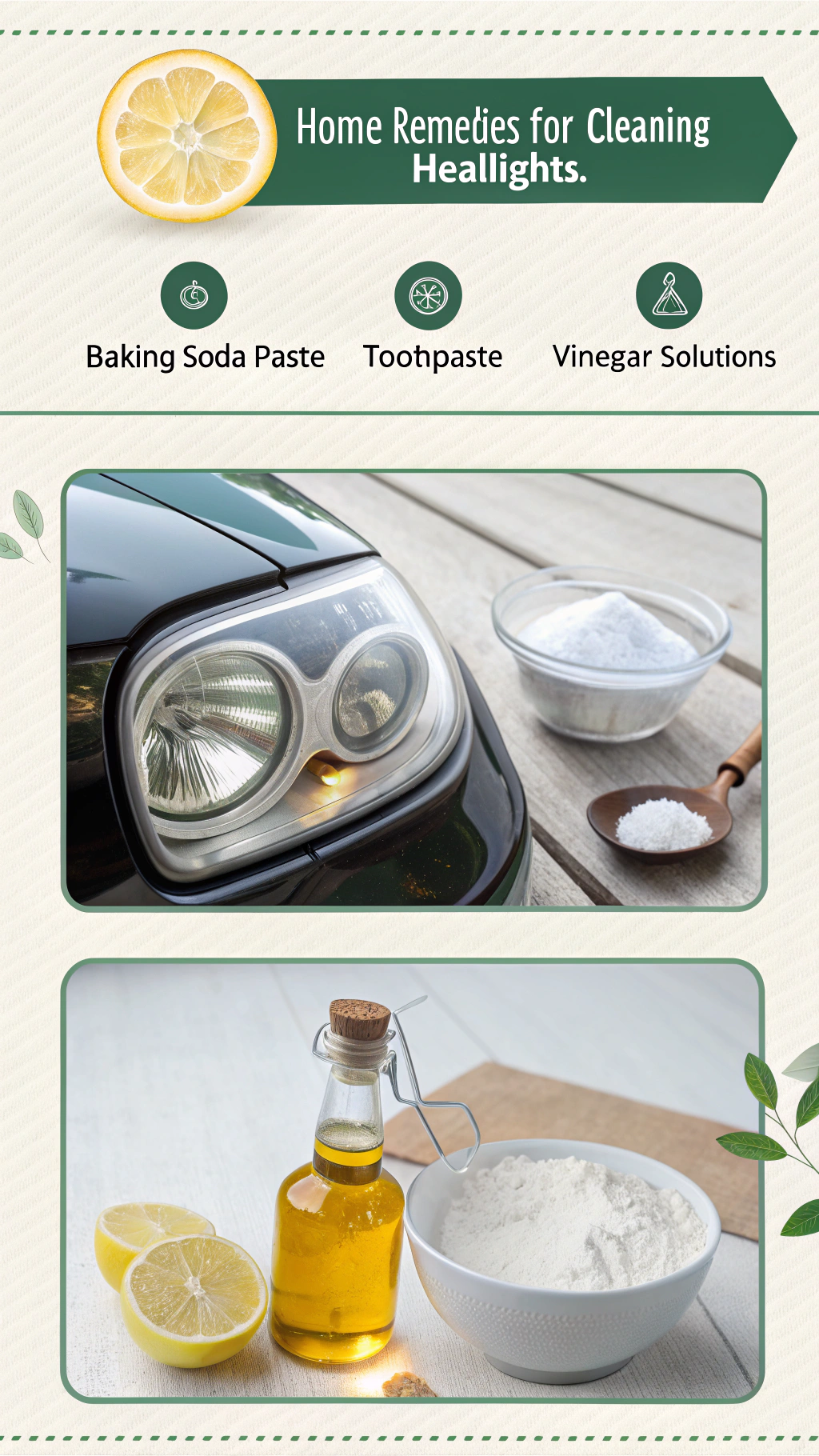Oxidized Headlights Home Remedy Restoring Your Lights
Oxidized Headlights Home Remedy Guide: Holistic Stress & Anxiety Relief for 2025
Feeling overwhelmed? You’re not alone. Modern life brings many challenges. Stress and worry affect us all. We search for gentle ways to cope. Simple fixes feel good.
Think about a car needing care. Sometimes something looks dull. Like oxidized headlights. A simple home remedy can fix that. It brings back clarity. Our inner world is similar. We need simple ways. Ways to bring back calm. Natural solutions exist. They help our well-being.
I have worked with natural remedies for years. I saw how they help. This guide explores these ways. We look at herbal medicine. We use Ayurveda principles. We find simple home remedies. This is about natural healing. It fits today’s world.
We will understand stress better. We find calming herbs. We explore Ayurvedic practices. Get ready for easy DIY solutions. We will find your path to calm.
Understanding Stress and the Holistic Body-Mind Connection
Stress affects everyone. It comes in different forms. Sometimes it is short, like a sudden scare. Other times, it stays a long time. This is chronic stress. Modern life has many triggers. Digital screens buzz constantly. Work demands pile up. News from the world feels heavy. These things add stress.
Chronic stress hurts your health. It shows up in your body. Digestion gets upset. Sleep becomes difficult. Moods swing easily. Your body’s defense system weakens. Stress touches every part of you.
Think of your body and mind as one. They are deeply linked. Feelings show up physically. A worried mind tightens muscles. A relaxed body calms thoughts. This is holistic healing. It looks at the whole person. It finds the root cause of stress.
Ayurveda sees this link clearly. It views stress as an imbalance. Often, it affects Vata dosha. This is one energy pattern. Knowing your dosha helps. Ayurveda principles guide you. They show your unique stress signs. This helps you find balance. Natural healing starts with understanding yourself.
Herbal Allies for Calm: Traditional Wisdom Meets Modern Science
Plants offer powerful help. People used herbal medicine for ages. They found comfort in nature. Herbs calm the nerves. They support a peaceful mood.
Certain herbs are great allies. I use them often in my practice.
Ashwagandha is one. It is an adaptogen herb. This means it helps your body handle stress. It builds resilience. Ancient texts mention its power. Studies today confirm it works. Take it as powder or capsule. Start with a small amount. Follow dosage guidelines. It is usually safe. Watch for any reactions.
Chamomile brings gentle calm. It is a nervine herb. It helps you relax. It helps you sleep. A warm cup of chamomile tea is classic. It has compounds that soothe. Dosage is easy to adjust with tea. It is very safe for most people.
Lemon Balm lifts the spirit. This herb calms anxiety. It brightens the mood. I love its fresh, lemony scent. Make a tea from fresh or dried leaves. Tinctures work well too. It is safe for most people.
Valerian is stronger. It is a sedative herb. It helps with sleep troubles. It calms deep anxiety. Use it carefully. It can make you sleepy. Follow dosage guidelines closely. It might interact with medicines. Always check first.
Using herbal treatments is simple. Make teas. Take tinctures. Use capsules. You can make your own simple teas. Pour hot water over herbs. Let it steep. Find herbs from good sources. Sustainable sourcing protects nature. Herbs work alongside other remedies.
Ayurvedic Practices and Herbs for Mental Well-being
Ayurveda offers a path to calm. It sees the mind, called Manas. The mind connects to your body. A troubled mind affects your health.
Daily routines bring peace. Ayurveda principles teach Dinacharya. This means daily rhythm. A set routine grounds your nervous system. It lowers stress. Wake up early. Eat meals at regular times. Find time for rest. Self-massage helps too. This is called Abhyanga. Use warm oil. It calms Vata dosha.
Ayurvedic medicine uses specific herbs. These support a clear mind. They bring calm.
Brahmi is a key herb. It helps your brain work better. It reduces stress. Ancient texts praise it. Use it as powder or oil. Follow dosage guidelines. It is generally safe.
Jatamansi also calms the mind. It helps with sleep. It eases worry. It is valued in Ayurveda. Follow dosage guidelines carefully.
Ayurveda includes mind-body practices. Pranayama is breath work. Simple breathing exercises help right away. Meditation brings stillness. Practice these daily. They build inner peace.
Diet matters in Ayurveda. Warm, grounding foods help. They balance Vata. This calms the mind. Eat cooked grains. Enjoy warm soups. Avoid cold, dry foods.
Accessible & Budget-Friendly Home Remedies and DIY Solutions
Stress relief does not cost a lot. Simple practices are powerful. Many home remedies are free or cheap.
Epsom salt baths are easy. The magnesium in the salts helps muscles relax. It calms the body. Add two cups to warm bath water. Soak for 20 minutes.
Aromatherapy uses plant oils. Essential oils smell wonderful. Lavender oil calms nerves. Chamomile oil soothes. Bergamot oil lifts mood. Use a diffuser. Add drops to a bath. Mix with carrier oil for massage. Use them safely.
Simple calming teas are great. Make tea from mint leaves. Mix chamomile and mint. These home remedy recipes are simple. They are effective.
Move your body gently. Gentle yoga stretches release tension. Walking in nature clears your head. These are wellness practices. They cost nothing.
Make your own remedies. DIY herbal solutions are easy. Mix essential oils in a roller bottle. Use it on your wrists. Infuse oil with calming herbs. Use it for massage. Make a small herbal sachet. Put it under your pillow. These are simple home remedy recipes.
Fit these into your day. Even five minutes helps. Consistency is important.
Integrating Approaches and Real-World Application
Combine different methods. Herbal treatments work well. Ayurvedic medicine principles help. Simple home remedies add support. This integrative wellness approach is strong. Start small. Try one or two things first. Find what feels right for you.
Doing practices regularly helps most. A little bit each day is better. It builds over time. Listen to your body. It tells you what works. Adjust your routine as needed.
Let me tell you about Anya. She is a graphic designer. She is 35 years old. Anya felt stressed all the time. She could not sleep well. She felt irritable. She looked for natural remedies. She did not want just pills.
Anya tried a few things. She took Ashwagandha daily. It helped her handle stress. She drank Chamomile tea at night. This helped her sleep. She did 15 minutes of gentle stretching. She added mindful breathing. This was inspired by Ayurveda principles. She also took Epsom salt baths sometimes. These were her simple home remedies. She followed some Ayurveda ideas. She went to bed earlier. She kept a routine.
Anya prepared her teas herself. She scheduled time for stretching. She made sure she had Epsom salts. After a few weeks, she felt better. Her sleep improved. She felt less stressed. Simple home remedies helped her. Consistent wellness practices made a big difference. Just like a simple Oxidized headlights home remedy can clear a car’s view, these natural steps cleared Anya’s mind.
Remember to be safe. Talk to a doctor. Especially for strong anxiety. Natural remedies help. They are not replacements for medical care. Research supports these methods. Ancient Ayurvedic texts teach them. Studies show herbs can help. World Health Organization talks about stress management. Use trusted sources.
FAQs
People often ask questions about using natural ways to feel better. Here are some common ones I hear.
Are natural remedies safe for everyone?
Natural approaches help many people. But they are not always safe for everyone. Herbal medicine can be strong. Some herbs might not mix well with medicines you take. Pregnant women need to be careful. People with health problems should ask a doctor first. Always tell your doctor about any natural healing methods you use. Simple home remedies like a bath are usually safe. But it is good to know precautions for anything new.
How quickly do herbal or Ayurvedic remedies work for stress/anxiety?
Do not expect instant results. Natural healing takes time. Think of building strength. Acute stress might ease faster. A calming tea can help quickly. Chronic stress takes longer to shift. Consistency is key with Ayurveda principles. Taking herbs every day helps your body build calm. Give remedies a few weeks or months.
Can I take multiple calming herbs or remedies at once?
Be careful mixing things. Herbal medicine can interact. Sometimes, herbs work better together. Other times, they can be too much. Start with one herb or home remedy. See how you feel. If you want to combine them, go slow. Ask a trained person like me. Or talk to your doctor. Understand the precautions for each one.
What’s the most budget-friendly way to start using natural remedies for stress?
You do not need fancy things. Simple home remedies cost very little. Breathing exercises are free. Taking a walk outside is free. A warm bath is cheap. Drinking water helps. Making simple teas is low cost. You can grow mint yourself. These natural remedies offer big benefits. Natural healing is often accessible.
How do I know if my stress/anxiety requires professional medical help?
Natural ways help a lot. But sometimes you need more support. If stress stops you from living your life, get help. If you feel hopeless or scared often, see a doctor. If you have panic attacks, talk to a pro. Natural remedies are good support. They are not a fix for severe issues. Your health is most important. Take all the help you need.
Conclusion
We talked about finding calm. Stress hits us all. But nature offers many gifts. Herbal medicine helps. Ayurveda principles guide us. Simple home remedies work wonders. These are tools for natural healing.
Remember the idea of fixing things. Maybe something visible needs a simple fix. Like an oxidized headlights home remedy. Our inside world needs care too. We can use easy, natural ways.
Start small today. Pick one wellness practice. Try a calming tea. Or just sit quietly. Find what feels good for you. Natural remedies are here to support you. You can find peace naturally.
Jamie Carter
Jamie is deeply committed to holistic wellness, blending natural, home, and homeopathic remedies into her family’s daily life. She lives in a suburban home with a small herb garden where she grows plants like chamomile and lavender for remedies. Jamie spends her mornings teaching yoga and her afternoons researching or preparing remedies for her family’s health needs. She’s active in local wellness communities, often attending workshops on homeopathy and natural healing, and prefers gentle, non-invasive solutions over conventional medicine.
Goals and Motivations
Primary Goal: To support her family’s health using natural, home, and homeopathic remedies that are safe and effective.
Secondary Goal: To deepen her knowledge of homeopathic principles and share reliable remedies with her clients and community.
Motivations: Jamie is motivated by her belief in the body’s ability to heal itself with minimal intervention. She values remedies that are personalized, sustainable, and aligned with homeopathic philosophy, such as using highly diluted substances to stimulate healing.


